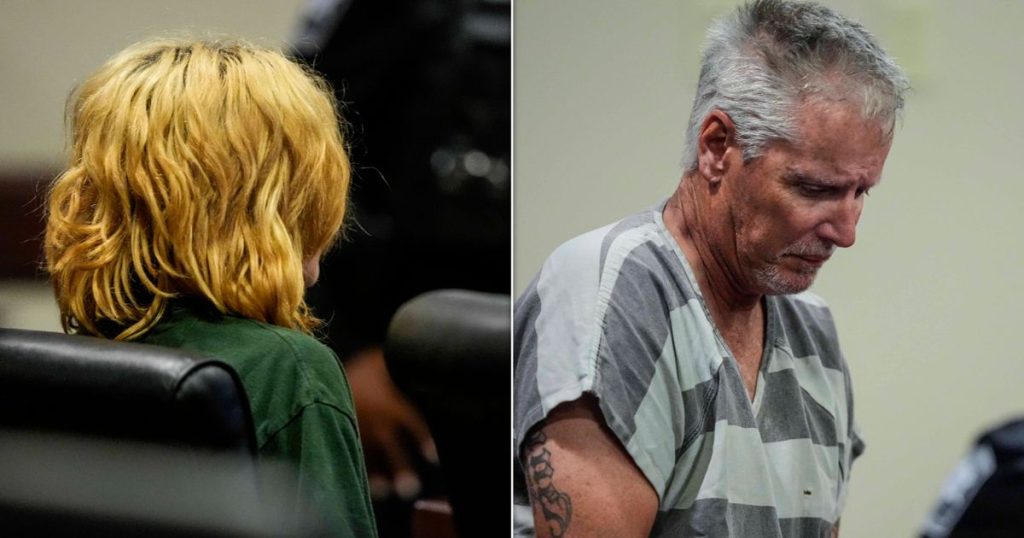The teen accused of fatally shooting four people at his Georgia high school appeared in court with his father, facing the possibility of lifetime imprisonment if convicted. Colt Gray, a 14-year-old charged as an adult, was informed by the judge that he could face life in prison with or without parole for each of the four counts of felony murder against him. While initially told he could face the death penalty, the judge clarified that he would not face death due to his age. His father, Colin Gray, also appeared in court and was informed that he faces a maximum sentence of 180 years in prison if convicted on all counts against him, including charges of felony involuntary manslaughter, second-degree murder, and cruelty to children.
Authorities revealed that Colin Gray knowingly allowed his son access to a semiautomatic assault-style rifle used in the school shooting, which resulted in four deaths and nine injuries. The FBI had previously investigated the father and son after claims that the then 13-year-old had made online threats about a school shooting. However, no charges or arrests were made as a result of that investigation. The 54-year-old father appeared visibly distressed in court, rocking back and forth while listening to the judge and appearing to sniffle as he was presented with legal paperwork by his attorney.
The tragic incident at Apalachee High School has left the community reeling, with four lives lost and multiple individuals injured as a result of the shooting. The Gray family’s court appearances shed light on the alleged role of the father in allowing his son access to the weapon used in the attack. The severity of the charges faced by both father and son underscores the gravity of the situation and the potential consequences they may face if found guilty. The court proceedings have drawn attention to the issues of gun access, school safety, and parental responsibility in preventing such tragedies.
The case raises questions about how the legal system handles juvenile offenders charged with serious crimes, as Colt Gray is being tried as an adult despite his young age. The decision not to pursue the death penalty for the teen reflects legal restrictions on sentencing minors to capital punishment. However, the potential for life imprisonment highlights the severity of the charges he faces, as well as the impact of the shooting on the victims’ families and the community at large. The father’s alleged actions in allowing his son access to the weapon bring attention to the importance of responsible gun ownership and the role of parents in preventing violence.
The court appearances of Colt and Colin Gray serve as a grim reminder of the devastating consequences of gun violence in schools and communities. The tragic loss of life and injuries resulting from the shooting have sparked discussions about ways to prevent such incidents in the future, including stricter gun control measures and increased support for mental health resources. The legal process will continue to unfold as the case against the father and son progresses, with the potential for significant ramifications for both individuals and their families. The community remains in mourning as they grapple with the aftermath of the violent attack and seek justice for the victims.


